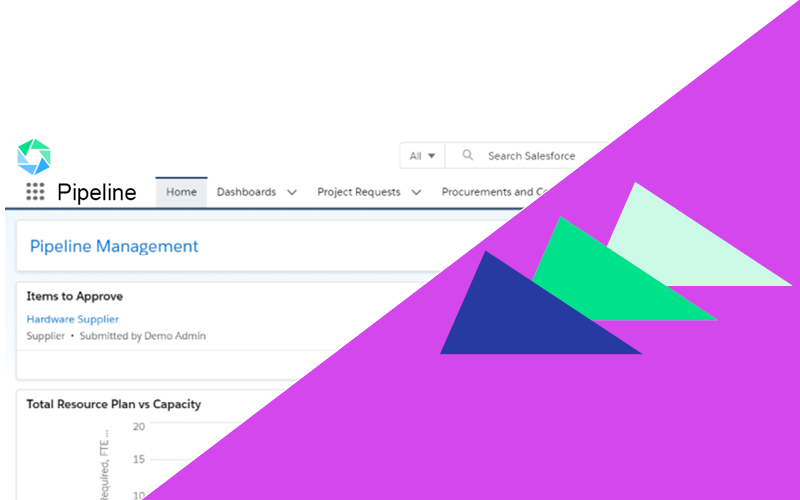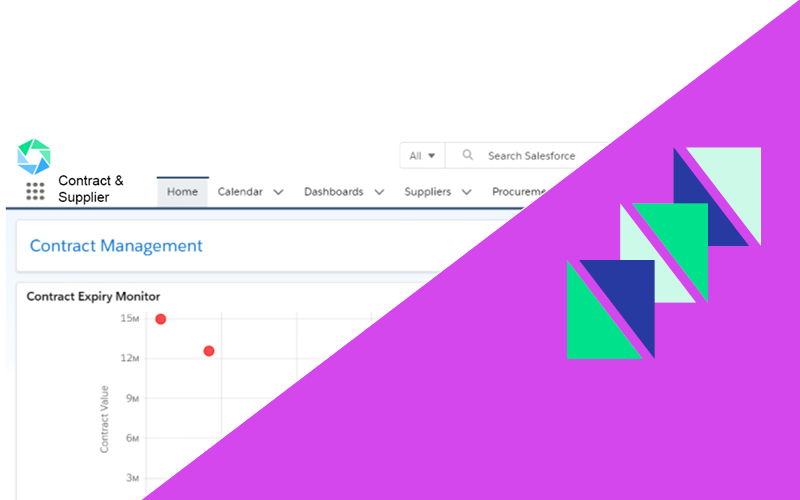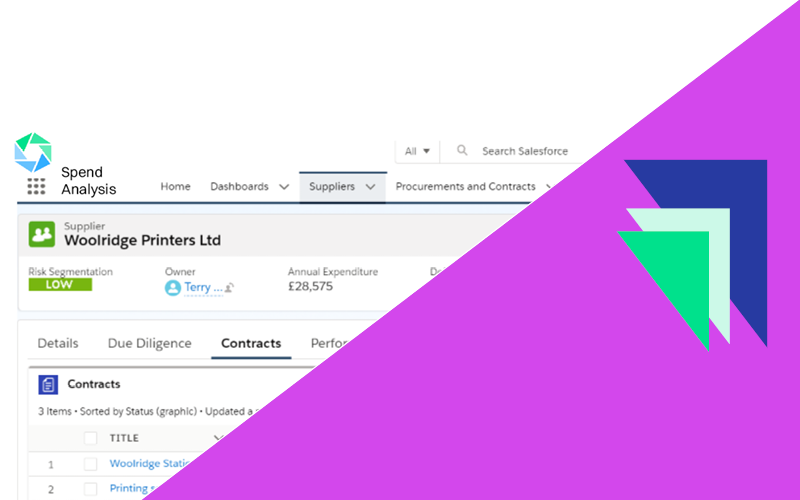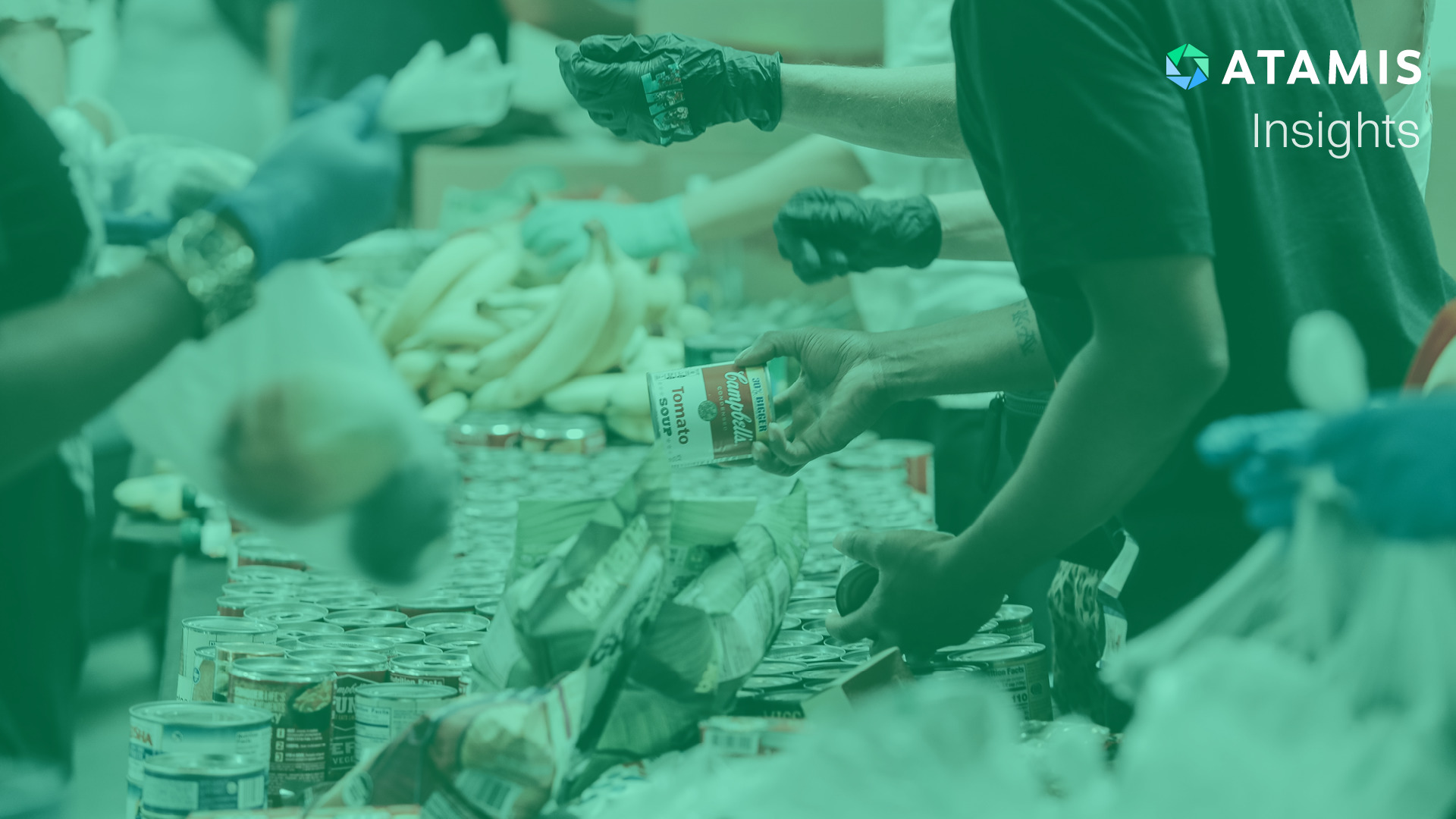“What I’m passionate about is responsible procurement. When we’re buying goods and services, we think about who we’re buying them from, who’s being impacted by that, and the decision-making that goes on in the organisation.”
In this episode of Powering Procurement, hosts Sian Lloyd and Gareth Burch are joined by Jane Lynch, Director of the Centre of Public Value Procurement at Cardiff Business School. Together, they explore how procurement can be a powerful tool for social impact and innovation, how the Well-being of Future Generations Act is shaping public spending in Wales, challenges and successes and driving sustainability and innovation in procurement, and why collaboration with small businesses and community organisations is essential for creating long-term impact.
Jane’s incredible career spans decades of research, teaching, and practical influence in procurement, with a special focus on delivering public value. She has been a driving force behind innovative projects, such as embedding social value into procurement and achieving net-zero social housing in Wales. Jane’s work is transforming how we think about procurement, not just as a transactional function but as a strategic lever for social, environmental, and economic change.
If you enjoyed this episode, make sure to subscribe, rate and review on Apple Podcasts and Spotify; instructions on how to do this are here.
Find on Spotify
Find on Apple Podcasts
Watch on YouTube
Are you looking for procurement software designed with you in mind?
Speak to our team today about transforming your procurement function.
Get a Demo
Read Full Episode Transcript
Read Full Episode Transcript
[00:00:00] Sian Lloyd: The Powering Procurement podcast is brought to you by Atamis, sourced to contract software designed to save you time and money. Hello, and welcome to Powering Procurement, a podcast by Atamis, where we unpack the world of procurement and supply chain management with the help of industry leaders. I’m your host, Char Lloyd, and this is our resident expert, Gareth Burch.
[00:00:24] Gareth Burch: Hi. After 20 years in procurement, I may be billed as an expert, but believe me, I’m here to learn too.
[00:00:31] Sian Lloyd: Each episode together with our expert guests, we’ll dive into specific challenges and opportunities facing the procurement industry today.
[00:00:40] Gareth Burch: And we’ll explore easy wins and longer term strategies to help you rise to the challenge of driving value through your work while showcasing the power of procurement.
[00:00:50] Sian Lloyd: So let’s get going. Welcome to Powering Procurement. Today, we are honored to be joined by professor Jane Lynch, a leading voice in the field of procurement and an academic professor at Cardiff Business School. Jane’s incredible career spans decades of research, teaching and practical influence in procurement with a special focus on delivering public value. She currently leads the Centre of Public Value Procurement at Cardiff University and has been a driving force behind innovative projects such as embedding social value into procurement and achieving net zero social housing in Wales.
[00:01:32] Gareth Burch: Jane’s work is transforming how we think about procurement not just as a transactional function, but as a strategic lever for social, environmental, and economic change with a mindset we’re completely aligned with. Her insights are helping shape procurement policies in Wales and beyond, creating meaningful impact through initiatives like the Well-being of Future Generations Act. Today, we’ll discuss how procurement can act as a driver for economic policy, foster innovation, and help solve some of the biggest challenges of our time. Welcome to the podcast, Jane.
[00:02:13] Jane Lynch: Thank you for that very grand introduction. Let’s hope I can fulfill, uh, your, uh, your ambitions here.
[00:02:20] Sian Lloyd: Jane, you absolutely deserve it. It’s great to have you here with us today, and we’re really looking forward to delving into some of your experience, um, that I know you can share with us on the Power and Procurement podcast. To begin with, we always like to get a sense of who our special guests are. You’ve had such an impact over the years but it’d be great to hear a little bit about your journey and why you chose procurement really as your research field, your specialty.
[00:02:50] Jane Lynch: Um, okay. How long have you got? It’s an interesting one. Um, well, I think we if we start with where we are, I’m a grandma of 3, so that kind of puts you in the in the age bracket. Um, a very proud grandma of 3. But, no, all joking aside, I grew up in a family business and, um, worked in the family business from a very early age and instantly even realized that, you know, having supply shortages bought sad faces. I then became had very unusual, um, career route. I started off as, um, a clothes designer. I did very well at that, um, but it wasn’t really in terms of income, it wasn’t really stable enough. So I, um, took on a management graduate scheme, um, in a department store and then eventually became assistant buyer, um, from various departments. And still in touch with those people even though it was the 19 nineties that I kind of left the retail, um, market and went back to university to retrain. So when I had my children, uh, 1992, 1994, I went back to university to train 2 nights a week for quite a number of years and then just kind of fell into teaching, I suppose, started off teaching about retail buying and the changes that were happening at that time with overseas sourcing. So procurement is really kind of, um, you know, being a part of every every step of the way of what I do, really. And, um, it was really public sector procurement is where I am now. But, I mean, that’s certainly not obviously how I started my journey, and it was really the volunteering work that I did with CIPS, the Chartered Institute of Procurement and Supply, and realizing that everybody else in the committee was working in the public sector. And I thought I don’t really know much about public sector. This is about 2010. And, um, somebody said, what do you do, Jane? I said, well, I try to teach procurement, but, you know, listening to you, maybe there’s a bit more that I need to know. So that’s how the conversation started, and I was I was hooked. Um, my first piece of work was in 2013 with Welsh government exploring the contracts that had been measured through community benefits measurement tool, understanding the additional value that was created, um, from large construction projects. And I guess it was really that project that really, um, got me to really take up the interest in the whole it’s not a job now or a career. It’s a it’s a lifestyle. It you eat, sleep, and breathe it 247 now. Um, but, yeah, I very proud to love procurement.
[00:05:09] Sian Lloyd: That’s absolutely great to hear. And Gareth and I have met you, Gareth, obviously, a lot more than I have. But whenever we meet you, Jane, your love of procurement certainly shines through. And I suppose from the understanding that I have, um, of your work and your passion at this stage, it’s very much about procurement driving social value and societal change as well, isn’t it?
[00:05:35] Jane Lynch: Yeah. Absolutely. I think, you know, what I haven’t emphasized in that very brief description about how I got to where I am today is that I do feel that, you know, academia is certainly not something that I didn’t anticipate early on in my career, but I now feel that I have obviously put in the hours to get where I am. I feel it’s a very privileged position, and I feel that it’s important that you use that position to deliver meaningful outcomes for people who need it most. And, of course, that really speaks the the volume of of what can be achieved with with with procurement, the power of procurement. And I think while I’m very passionate about procurement per se, what I’m passionate about is about responsible procurement, about when we’re buying goods and services, thinking about who we’re buying them from, who’s being impacted by that, and the decision making that goes on in the organization. And I guess because of my experience of working with different organizations of different governance structures, I started to appreciate, um, how decisions made in the business can have an impact on you as individuals in your department, the way you act, um, the, um, processes that you follow, um, your reporting mechanisms, and so on. And so that kind of resonated. That experience resonated with me very much when we look at public sector procurement and the accountability that’s necessary to make sure that when we’re spending tax payers’ money, let’s look at it, 320,000,000,000 of it a year, approximately. You know, that’s a considerable amount of money. And imagine that that’s all being invested to help and support people who need it most in communities in and around the UK. That’s what I’m really passionate about.
[00:07:11] Gareth Burch: So, Jane, Wales has been at the forefront of embedding social environmental principles. And what, for you, has been the most surprising or inspirational outcome of this approach?
[00:07:24] Jane Lynch: So I think, first of all so I’m part of research group group called, uh, Spin International Research Study on Public Procurement. And I was asked I was invited to, um, join the academic team back in 2013 following the work that I did on community benefits. And definitely at that point of time, um, I without a doubt, um, Wales is considered to be, you know, part of the UK as a developing country, but actually, we’ve got some of the most poverty stricken communities, not just in the UK, but across Europe, 27 countries as we were part of then. Those are those are quite alarming statistics. And that means that whatever we’re doing isn’t enough. We need to do more of it. And so I think, really, the work I was delivering from at that time was it of interest to the wider global platform, and that’s we actually ran a workshop, a global workshop, inviting leaders of procurement from across the globe to talk about how they embed community benefits into their procurement. And it was interesting that, actually, some of the most developed countries were doing the least. Almost like you seem to go full cycle, but, actually, what we found in our study, we published a book chapter on it, public value book, was really that, actually, some of the least developed countries are doing the most. And it almost seems like you in you you start off on this journey where everything that you spend is there to help and support local communities and individuals within there, helping them to upskill to gain employment opportunities where they perhaps wouldn’t have been previously. But then as they become more and more developed and cost becomes this obsession for far too long with governments where it’s all about lowest possible cost, you start to strip out all of that benefit, and you lose that benefit, the potential that can happen. So I think what I was really inspired by in Wales is that well, it started with the the conversation, uh, conversation, the Wales We Want campaign. I can’t remember the year exactly, but it was it was quite a number of years where a consultation, um, process was was conducted across Wales asking various stakeholders, you know, everybody from somebody on the high street to people in public sector roles to business professionals and so on. What would you like Wales to look like by 2050? From those conversations, they developed a bill. And from that, they developed an act called the Well-being of Each Generations Act 2015. And that act provided a framework that said to anybody in the public sector, you can now do things differently. You can now make a difference with your spend. So for me, that was a pivotal point, really, for Wales. This was an opportunity for us to get things right, to correct where there’d been too much emphasis on short term thinking, on maybe more transactional relationships rather than collaborative relationships, and really thinking about what is it we’re trying to achieve. So the Well-being For Each Generations Act is based on 7 goals and 5 ways of working. And if you like, that becomes I would refer to it as our North Star. I think it’s important for people living and working in a in a country to know what they’re trying to achieve overall. That’s what you’re trying to achieve for your business, so you as an individual. But ultimately, why do we exist? What is it we’re trying to achieve collectively that will make things better tomorrow than they are today? And what I really loved about the Well-being Future Generations act is this emphasis on future generations. And I always remember the words of Sophie Howe, the then future generations commissioner saying, we can’t necessarily change today’s problems, but we can prevent tomorrow’s. And I really, really pull back on those words, you know, time and time again, and think about what can we prevent, what preventive measures that we can put in place. And I do very much see procurement professionals at the forefront of that. They’re very much the gateway to the business community able to really think hard and fast about how we go about procuring goods and services for, um, the public sector in Wales. So I think that that act has really put us on a global map, But, also, it means that everybody’s looking at what we’re doing, and it means that we have to now deliver results from that. So, yeah, I mean, there’s a lot I could talk about there, of course.
[00:11:28] Gareth Burch: I love the concept of the North Star, and it’s something, uh, I’ve tried to to use utilize, maybe not as effectively as, uh, I would like to think it was, but I think it’s a great concept to align people. But one of the things I always find quite interesting is how you bring and align the academic viewpoints to the deliverable viewpoints because sometimes it doesn’t necessarily align, and the academic research is actually quite powerful to help drive direction. But from a day to day perspective, people may not buy into it as much as you’d like.
[00:12:13] Jane Lynch: Okay. It’s great. Great quote. Great topic. Got it. But that definitely about another 3 hours taken here. Okay. Okay. Uh, let’s let’s see where I can start with this one because I’m not your traditional academic as you’ve already picked up. However, you know, I have, um, an obligation and a duty to as part of Cardiff University, um, to publish. It’s a different language, slightly different language, more conceptual. One of the things that kind of, um, irritates me slightly is when people talk about, well, this is what’s the real world? You know? Are you engaged in the real world? And, actually, I’m I’m in the logistics and operations management section of Cardiff Business School. Cardiff Business School has a public value strategy, which says, actually, we do much more than just churn out the next Enron finance corrupt financiers. We we do much more than that, and that really resonates a lot with us in our logistics and operations management section because we’re all about relationships. We’re all about supply chain. We’re all about building resilience. We’re all about being agile. We’re all about reducing risk. And so it’s something that really resonates strongly with us. We’re about 35 academics in the logistics section on operations, logistics, supply chain, forecasting, obviously, procurement, uh, modern slavery, you know, a whole raft of things. So I think really point about and all of us are doing applied research. So I’m not saying that there isn’t some research. It’s just purely conceptual, hypothetical. Supposing we put these constructs together, supposing so, I mean, instantly, let’s think about sustainability. Sustainability in nearly all of the academic studies. It’s not. A it’s a very, very well trodden path. Yeah? And the basic principles of sustainability are societal, economic, environmental. And in Wales, and also some other academic authors, would add the 4th dimension, which is cultural. So there’s science behind all of those, but we use them in a practical and applied way, don’t we? Yep. And so here’s a good example of how you’re breaking down a concept, which is sustainability. I’m getting a bit animated now. Um, and you can actually Um, and you can actually then think about okay. So there are 4 elements to sustainability as we know them. Let’s think about how they interrelate with each other. Actually, then let’s look about some of the trade offs that might happen when you’re trying to balance those pillars of sustainability. And that’s why you have to keep, you you know, applying that that theory, that knowledge, and understanding how you do that. So, yeah, I mean, there’s constant debate even in the academic level about the extent to which you embed theories. And there I’ve got 2 books full of theories. They give us a lens, a way of thinking about something, a perspective of thinking about something. It’s a bit like if you’re looking at it from a public sector lens or a private sector lens or a 3rd sector lens. Are they really any different? Maybe not. But actually, what we’re trying to achieve at the end of it will be slightly different. So it’s exactly the same in academia. And actually, you know, science is underpins pretty much everything that we do. In fact, on a recent trip to Milan, I went to the lino Leonardo da Vinci Museum. And even I was staggered at just how much we owe that individual and the people that he employed around him. Pretty much every moving part that we use in our in our world today comes from Leonardo da Vinci. And there’s science. Sun science has underpinned the way that we behave, the things that we use, rowing boats, um, turning wheels, anything that you can think of. So, you know, science and and its application, you can only you know, you can hypothetically come out with some conceptual idea. But to actually make it happen, you have to apply it in practice, and that’s what I think we’re particularly good at at Cardiff.
[00:16:00] Sian Lloyd: Yeah. What I’m picking up from both of you, actually, uh, Jane and Gareth, is delivery. And perhaps taking that a step forward, but also one step back to what you were talking about, the Well-being of Future Generations Act, Jane, which was brought in 2015, wasn’t it? So some years ago now, looking perhaps and focusing on the outcomes of that so far, you know, are there any inspiring or surprising outcomes that have so far been delivered?
[00:16:28] Jane Lynch: That’s a really good question actually because, um, I was involved in the research element of, um, a review across the whole public sector in Wales, 44 public bodies, um, who are mandated to be guided by the principles of the of the act and to be able to demonstrate that they’re embedding them into their procurement, um, in Wales. And what we actually looked at was, first of all, whether they had a strategy, whether there was any evidence of any of the language that was used in the act, whether we could see evidence of that. We also looked at contracts. So in the tendering process, looking at pin notices and so on, whether again there was any language in there. And I have to say that in 2018, 19, we were a bit disappointed. We thought there was gonna be a lot more development, but what it did highlight is that there’s a lot of passion to do the right thing. The procurement people are really committed to do the right thing, but they’re being held back or feel constrained by one of 2 things, finance, budget constraints, 30% year on year budget costs. How can you do more with less and still be sustainable? Quite a challenge. The other one is really thinking that, you know, we have to follow a particular process. So there was a lot going on at that particular period, which was causing preventing a lot of things. Having said that, there were a lot of really great practices going on, so we know it is possible. Where I what I identified in in that piece of research and have continued to do so since is what that says is when you embed sustainability into your procurement, that isn’t enough. You can’t expect procurement to deliver if the rest of the organization don’t also follow those principles. So when you’re embedding something like sustainability, um, you or social value, however you wanna term it, because the principles of it are very similar, you really do need to make sure that it’s embedded across the organization so that your whole organization is working to that North Star. And then you can start to make the changes that are required. I think in many regards, what was happening is that the procurement is moving at a faster pace than the rest of the organization. And one really good illustration of that is budgets. We we need to be thinking about procuring sustainably. There’s research evidence which suggests it costs more. The research evidence that says that it doesn’t. I think it depends on the category of spend. It depends maybe on the geography of where you are when you’re procuring. It depends on a number of different factors. But, ultimately, you know, if we’re looking to more long term solutions, we’re looking at being more preventative. The first question we ask is, do we need to buy it at all? The second 1 we then to think about is if we’re going to procure, do we have local suppliers to do that? That’s logical, isn’t it? It makes sense to do that. And I don’t know that that’s necessarily that joining up is what’s, you know, was happening maybe 10, 15 years ago as to what we now know is is starting to really emerge now and is becoming quite a widespread trend. And I think that the pandemic period, the COVID pandemic, really elevated the importance of that mindset that has to go through the organization to be prepared, to be more resilient, to be more agile, and to value the supply community that we have around us and why we need to to use those.
[00:19:39] Gareth Burch: Just picking up on what you just said, two key points which jump out at me is process and the introduction of, uh, transforming public procurement for 20 coming in in 2025. And the challenge is that and the budget may have two key elements like social and how procurement can continue to support against other challenges probably focused on the traditional cost reduction.
[00:20:07] Jane Lynch: There’s still quite a lot in there, but I think, um, so let’s let’s think about, first of all so the great news is that the procurement act 2023 will go live, so will be enforceable from 24th February 2025. I see this, and a lot of colleagues see this. I count myself as colleagues with other procurement professionals. I see us all as as one. So when I say we, I’m referring to all of us collectively. See it as a huge opportunity. We’ve got an opportunity now to do things right. Number 1 is simplifying procurement process. There are 3 main routes to procurement. That’s easier for the procurement professional to make a decision. It’s easier for the supply market to not feel that they’re being they’re missing something, that there’s some there’s something that’s the game of poker as it were. Yeah. So I think that’s really important. I think number 2, in terms of budgetary constraints, those are never gonna go away, are they? Um, but what’s what’s something that’s really important in the development of the new act is pipeline. And, basically, the requirement is and it’s already starting to happen to prepare for next year. Is that, um, public bodies have to advertise a pipeline of contract opportunities that are likely to come up in the next 12 months. Now this is fantastic news from both sides, from buy and supply sides because it gives everybody opportunity to plan. It gives opportunity to think about where social value can best be embedded. It gives opportunity to think about the budget constraints and how but importantly, how we overcome them. It gives us it gives suppliers opportunity to maybe think about forming consortium. It may gives people opportunity to prepare their own supply chain to maybe scale up their business if they’re a smaller business. So I see this pipeline as a really important opportunity. And what’s important here is that when we talk about embedding sustainable principles into procurement, it’s not gonna happen on its own. It has to happen across the organization. This is a mindset change and a whole governance issue here that needs to be embedded. And that’s why I think initially back in 2018, 2020, it was still a bit of a struggle. Some people get it, some people don’t. That’s not enough. If you want to follow that North Star, if you want to achieve more sustainable outcomes, meaningful outcomes, um, for people who need it most, this is something that needs to start individually, but be really embedded deeply across the culture of the whole organization. And then you’re all singing from the same hymn hymn sheet, aren’t you? Yeah? But, I mean, instantly, it means that you haven’t got conflicting objectives going on within the organizations and tensions that can happen. Um, that particularly comes up when it gets to measurement of of what we’re trying to achieve here here when it comes to social value outcomes. So for every 1 pound spent, how much of that is reinvested into local economy? How many people have benefited from employment that perhaps would never had that opportunity? Um, have we exposed schoolchildren to a career opportunity they perhaps would never even have considered? You know, all of these kind of things. And so it gives us much more opportunity to plan. It also means that more voluntary sector organizations can get involved because there is that time. I think what we’ve had before with the procurement process as it was before is you’re trying to set up a massive piece procurement in 2 or 3 weeks. Where’s the innovation then? You know? Where’s it is only gonna be about cost. And it’s gonna be a very unfair playing field when it comes to the supply market opportunities because the largest organizations have already got the capacity and the resources there to be able to prepare for those opportunities that come up. So I think that this is gonna really widen opportunities, and it in itself, that will develop. That will create social value. So I think that’s really important going forward. So I while I think that, you know, budgetary constraints are never gonna go away, I do feel that the the whole sustainability agenda is really forcing us to think differently about what we procure, why we’re procuring it, and then how we go about procuring it as well. So I think there’s, you know, really I am very, very hopeful about what the future will bring.
[00:24:20] Sian Lloyd: Jane, that was really fascinating. And I’d just like to pick up on what you were talking about innovation to develop that because we’ve had some really big thoughts there already from you and from Gareth as well. Thank you both. In terms of procurement driving innovation, you know, what’s that key thought from you? What’s your key message on that?
[00:24:40] Jane Lynch: Well, here’s another, um, example, Gareth, of where, um, academic science, um, informs practice and vice versa. So actually in 2021, we published a paper on exactly this, about understanding as a result of the pandemic, um, what that was doing to innovation. What we looked at, first of all, is does a policy for innovation exist in a country before the pandemic and after the pandemic? And we looked at then, was there a strategy for innovation, for managing innovation? We looked at, um, tender notices and whether the word innovation was actually mentioned. So I think it’s an interesting one. Um, there was definitely so go back to that paper. There was definitely an upward trend post pandemic and a move towards being, um, to to prioritizing innovation. But I think, you know, let’s think about sustainability and innovation. I think I’d like to think that one day we come to the point where we don’t use have to use those terms because what we’re doing every day should be sustainable, and it should be innovative. We should always be looking for developing new solutions, new products that are better than the ones we had yesterday. And procurement, of course, is positioned to be very much part of that journey and responsible for developing and helping to developing, creating the opportunity, um, for those innovations to develop. What’s particularly interesting, I think, is is that we see procurement as very much at the forefront of driving innovation, but it’s not gonna happen unless you’ve got economic stimulus packages as well. So I think there’s a fantastic paper published by, um, Sandra Hamilton from University of Manchester, and she says procurement, a market shaper, or a price taker. For too long, governments have focused on lowest cost and not getting best value. What we mean by best value, value for money, is really thinking about, is it innovative? Is it a new solution? Is it better than the one we have today? And importantly, does it embed sustainable values in the way that we procure it and what it offers as well? So I think that, you know, we really do need to learn from that and think about how influential procurement is in terms of shaping the supply market. Uh, a report was, um, updated a couple of weeks ago from the UK cabinet office. I was quite shocked and and concerned stats on the SME. We talk about SME, but, actually, I think it’s very much a European term. The UK is very much a micro and small business economy. Let’s not be honest about that. The stats that came out in the SME, um, guidance document from UK Cabinet Office said that I think it was 99.2% of businesses are employing less than 50 people. That’s across all of the UK. That means that our supply market if you’re a public sector buyer, that means our supply market is highly fragmented. What we need to make sure is that our processes ensure a fair competition for those small businesses to make sure that they’re delivering that innovation. One of the challenges for small businesses to supply the public sector is their ability to scale up quickly. And so what you you kind of need there and what we learned from the pandemic period is how initiatives from the department for economy have to align with initiatives from department for finance, where I’ve seen some fantastic initiatives, SBRI, for example, small business research initiatives looking at innovation in health care innovations coming forward that would really transform people’s lives. Getting them procured is another step forward. So first of all, the stimulus package that says, this is our challenge. We want you to now go out and see if you can innovate in this particular area and come up with some great solutions. And I think that element worked really well. What we then need to do is this other piece of work, community of practice, to then think about how can we then translate that into meaningful procurement outcomes so that we’re actually buying those services, but doing it in a legitimate way, which means that we’re, you know, not falling foul of procurement law and that we that that we are compliant, should we say, and we’re being fair and open in competition. So I think innovation is gonna be absolutely key going forward, particularly with the the net zero agenda. Because for many of us, we’re still modeling our way through. We’re still quoting data, but still questioning ourselves. Is it accurate enough? What is accurate enough? And we’re advancing at such a rapid stage. We’ve got AI, artificial intelligence, but it’s really coming into everything that we do, every part of our day. And while I’m quite skeptical as a bit of an oldie about what artificial intelligence is doing us for our mind, I think it’s making us a bit lazy. Nevertheless, it’s capable of really, you know, doing some fantastic things with very large datasets and transforming, giving us the knowledge that would have taken us days, months, years to be able to do before. But I think that we need to be able to grasp all of these opportunities to make more meaningful outcomes in terms of delivering our innovation, um, outcomes for better public service delivery. And what we’re looking at here then is about and I think Austerity Global is a new, um, organization that’s coming in. I was quite interested to see in their strategy. What they really talk about here is about not just about spending. It’s about investing. So we’re using taxpayers’ money to buy goods and services, but rather than looking at as a as, um, a short term cost implication, it should be a long term investment. So if we’re buying more innovative and more sustainably, then hopefully, the long term public sector overhead costs should be lowered. Better value for outcomes for people, particularly when it comes to health, uh, particularly when it comes to nutrition, food, and so on would be another great example here. Um, so some really interesting examples. I know Cardiff Capital Region constantly have challenge fund calls where they invite they invite, um, suppliers to come in and to share and to discuss what what could what the art of the possible is, what can be done. Then we can think about whether it’s cost effective and how we make it cost effective, um, to be able to be procured.
[00:30:58] Gareth Burch: I think it’s really interesting, to be honest with you, because I see the challenges facing, uh, more public. But then it’s quite interesting from a private sector background. We often build in innovation as into our sourcing processes. We identify areas of innovation, hopefully, quite early ish on, and we then lose it. Uh, as it transitions through the the life cycle, it almost it’s identified in sourcing. It’s actioned in sourcing. Then we move to contract management, and it could be a 3 year, 5 year contract. But we’re not really circling back to then say, with suppliers, what additional innovation is there. And it’s one of those areas, I think, stifles innovation within private, and that might be a bit too critical of all businesses. But in my experience, it happens more often than not. And driving that innovation through there, at that contract management piece, could stop and help private from going back out to the market, engaging with more SMEs, and forming that collaborative relationship, which I do think from a procurement perspective, we sometimes are hesitant to do to ensure we have the right relationship with our suppliers to almost the buyer supplier, not the collaborative.
[00:32:31] Jane Lynch: My take on this is okay that innovation in the private sector is is basically whether you’re gonna stay in business or not. It’s competition. You have to innovate in the private sector to remain competitive. Innovation in the public sector is about public value. And I think, you know, that that’s why I I think we have to move more into the innovation space. I think and what’s really, again, another, um, key element. So I was one of the few people that really was pro, um, innovation partnerships, and I loved the concept of innovation partnership, which came from the European Commission because any innovation requires r and d investment. A company has to invest, and it’s very difficult to recover that cost unless there’s, um, they’re they’re selling that product out in in mass, and then they can start to recover that cost. So look at the product life cycle model or any model, all those other academic scientific, uh, frameworks that you can use. But they help us, and they guide us to understand how we embed innovation, at what point we should be in embedding innovation, and actually what it costs to the business, how we recover that cost in the business, and so on. And the public sector, if you like, is lacking behind the pub the private sector in that regard. What I, um, so what I liked about the innovation partnership is that you could procure the r and d element, first of all, and encourage the suppliers to work in partnership with you. It’s that partnership part of the innovation. That was the bit that was tricky because that’s a behavior which is not comfortable for some, but very comfortable for others. And so there were some really great examples of it. Um, but a lot of lawyers thought that was very too risky because the idea then is that once you develop the innovation, you don’t then go have to go back out to market to procure. And that’s exactly what was happening. Yep. So it meant it was a 1 stage process rather than a 2 stage process. The new procurement act actually embeds R and D and accepts that R and D may need to be procured. And I think the fact that it’s mentioned in there, even though I don’t think innovation is mentioned in there enough, I think it does give those who are understanding and wanting to be more innovative in terms of the goods and services that they’re buying in. It gives them the license to be able to do that in a more sustainable way so that we deliver better outcomes for everybody.
[00:34:47] Sian Lloyd: Both of you, that was a really fascinating piece. And I know we could even go further on that, but I wanted to pick up on the collaboration word that you mentioned, Jane. And to just take that a little bit further in terms of how important is that collaboration now between the public sector, the private sector, and indeed community organizations because we’ve both had some experience of this, Gareth, haven’t we?
[00:35:14] Gareth Burch: Oh, absolutely. Uh, attending Procurex Wales was very insightful. And what you did, Jane, in regards to bringing in local businesses to give them a platform in front of public sector procurement. And I think it’s not just collaboration as also innovation. So it’s great to see that level level of thought go into it.
[00:35:38] Jane Lynch: I think that’s really important. And, um, there are a lot of discussions as you can imagine, um, in the in the run up to Procurix about how we best go about that, how we make it fair. And, um, this is the first time that this was actually trialed, and I actually felt that having micro businesses and third sector organizations, social enterprise, being exhibited at at Precurex actually completely changed the culture of the whole of the show. And I think it was, uh, was a success. It’s the 1st time we’ve trialed it. We’ve got a lot of lessons to learn from it. But, basically, the idea was well, of course, we’ve got 96% of businesses in Wales, probably a bit more, um, and micro firms employing less than 10 people. If we’re spending between 8 and 10,000,000,000 dependent on some of the digital accuracy data reports that are coming out versus self reported data, you’re looking at anywhere upwards to around about 10,000,000,000 a year on goods and services. What we’ve got to make sure in Wales is that, of course, that those opportunities are gonna be open to the smaller business, the business that employs fewer people. And, of course, because of the Well-being of Future Generations Act and because we know it’s the right thing to do is that we need to really be seen to be providing opportunities for social enterprise where there is not for profit as a as a an agenda for voluntary sector who add enormous amounts of of benefit and value in terms of how we can better procure business services. You know, smaller businesses are the closest to the community needs. They really understand what’s going on, so why wouldn’t you want to use them? So I think what we’ve got now is we are starting to now get a process which will enable us to do that. Um, so from a procurement perspective, that’s gonna be starting to be a bit more possible. Back in 2012, we wrote a joint bidding guide, which, um, is still publicly available, um, and is soon to be updated, um, which helps support small businesses to bid jointly if they want to be able to grow their business, but maybe don’t see that as an opportunity. We also, um, in Procurex, they promoted the use of frameworks and how important it is to be part of a framework if you want to have public sector opportunities. But when we wanted to showcase these social enterprise, um, this year, we started to think about, well, you know, there’s so many. Where do you even start? So we use the foundational economy principles. So we looked at what the foundational economy is in Wales and the different the different industry sectors, and it and it felt that we were gonna we we decided that we were going to use 1 sector each year. So this year, we already know there’s been some great strides made in food and food supply chains, particularly getting more nutritious food and into schools and hospitals. So I thought that was a pretty good place to start. So we already know there’s been a bit of progress. So let’s springboard on that progress, and let’s showcase some of the great work that’s being done. And, of course, Sian, you know, it was great to have you exhibiting as well and, um, with the Food and Drink Awards as well. Um, so, again, all of these great initiatives that are happening, rather than happening in silo and the supply market being very confused by them, let’s pull them all together so that we have a joined up conversation. Now we’re starting to innovate. Now we’re starting to embed, um, social value. Now we’re starting to think about future generations. And we’re gonna deliver more meaningful outcomes. So I think we’d like to think that this is just the start of, um, a very long journey, but it’s absolutely essential that we now appeal to and and and change the stigma that’s been associated with public procurement and the door to say that the door is now very much open. You know, the public sector want to hear from small businesses to listen to the innovations that they have, to understand some of the geographical challenges that we might face in Wales, but to collectively to think about and that’s where the collaboration piece will come in. You know, Sean, is to think about how we can overcome some of the hurdles that we face and how collectively we can make things better, um, for end users, for the community in which the public services serve. So collaboration is gonna be absolutely key. Collaboration requires having the right process, having a system which is consistent and that is accessible to all. But importantly, it also requires specific behaviors. It’s about building a community of trust. It’s about an element of, um, change. It’s about being committed to that process of change. And I think that that’s the bit that needs still needs a little bit of work to be done. And as you probably already know, I’m a strong advocate of collaborative working mostly because of all the bad experiences I had in my early days as a buyer of people saying, we’re your partner and not acting like a partner. So I think, you know, apply the same principles as you do in your personal life in business and think about, you know, who do you want to trade with? How do we build our reputation together? And, you know, collectively, we can do think much more. You know, the African proverb is do things alone, but do things together, and you’ll work your walk much further. So I think that we have to now think about how we apply collaborative working, um, as a nation, uh, between buying supply sides and embracing all of the knowledge and the experiences and the accessibility in many regards. Uh, nongovernment organizations, third sector charities are the gateway to the community. So, you know, the public sector need that gateway to understand what the needs are, How would you know what to be prioritizing otherwise? So I think that’s gonna be really, really important. So there is actually an international standard for collaborative working, and they’ve just recently launched some guidance for small businesses as well on collaborative working as well. So you haven’t necessarily got to principles, but it does give you, um, a guidance, a framework to follow, um, to make sure that it’s gonna I mean, most collaboration starts, let’s be honest, when the project arrives in your inbox. Right. Let’s do this great project. Right. Who’s gonna be available on Thursday at 12 o’clock? Never mind. Are they the right people? Yeah? We’ve got to start thinking in a different way when we talk about collaboration. We’ve gotta make sure, have we got the right people around the table? If we haven’t, let’s use our networks to find them, and let’s make sure that we get the right people around the table. Because otherwise, we’re just muddling through, and we’ll never really achieve the optimal outcomes that were possible, um, if we didn’t do it properly. So, again, I think that pipeline will give us a window of opportunity to enable collaborative working to be a much more powerful force to deliver more meaningful outcomes for the people that need it.
[00:42:13] Sian Lloyd: Wow, Jane. We could talk with you for another 2 hours. I know. But
[00:42:19] Jane Lynch: no. Don’t apologize. Barely scratched it, have we?
[00:42:22] Sian Lloyd: It’s absolutely fascinating and such a pleasure chatting with you, but we’re coming towards the end of our time. Uh, so I’m gonna hand over to Gareth, uh, for this one because one of the reasons for this podcast is to shine a light on the power of procurement, but obviously also as procurement as a career. So, Gareth, over to you to grill Jane on this final question.
[00:42:45] Gareth Burch: So, Jane, for our younger listeners or those considering it a career change, uh, why are you happy that you chose procurement as a career, And what has made it fulfilling for you?
[00:42:59] Jane Lynch: It’s never gonna be fulfilled because there’s always more to do. And is there any other career? Come on. Let’s be honest. Even as a journalist, you’re in procurement now, Sean. Everybody’s trapped. Because everybody we’re all buyers. As individuals, we’re all buyers. We all buy our own goods and services. That’s what keeps us going in this world, isn’t it? So why not apply it in a business context, understand the importance of getting it right? One of the phrases I use in teaching is your, you know, your business is only as good as your weakest supplier. So if you use poor suppliers who’ve got a bad reputation or, uh, never really, um, you know, optimizing quality, then it’s gonna have an impact on your reputation, not them. Because you’re the one who has to deal with the reputation. And so I think, you know, really, really important to, um, yeah, it’s a fantastic career. There’s so many opportunities, and we haven’t got enough buyers. We need more. We need we need more experts in this field. So, yeah, we’ve got 2 MSc programs here accredited with SIPs, and I can’t get enough people on that course, really. We’ve got an undergraduate program, which has got modules elective modules. The University of South Wales has an accredited has accredited programs. There’s lots of opportunities out there wherever you’re wherever you’re based. Definitely think about it. If you’re late in life, it’s never too late. Look at what happened to me. I was, you know, 31 going back to university. That’s crazy, isn’t it? And, um, I think I was I can’t remember how old I was doing my PhD, but way too old. Um, there’s there’s never a right time. And I think, you know, if you’ve got that desire to get out there and train in procurement, you know, let’s remember our early conversations, Gareth. How did I meet you?
[00:44:38] Gareth Burch: Yeah. I wanna be in 2021.
[00:44:41] Jane Lynch: Yes. Yeah.
[00:44:42] Gareth Burch: Um, and
[00:44:42] Jane Lynch: The world is your oyster. Yeah. You did anything you wanted.
[00:44:46] Gareth Burch: Yeah. And I fell into procurement.
[00:44:48] Sian Lloyd: And I feel that could be a whole other podcast.
[00:44:52] Jane Lynch: It can.
[00:44:53] Sian Lloyd: Dane, you’re so inspiring. Thank you so much for being with us today.
[00:44:57] Jane Lynch: Thank you so much for the opportunity to speak with you both. Lovely.
[00:45:01] Gareth Burch: It’s it’s been our pleasure.
[00:45:03] Jane Lynch: Thank you.
[00:45:04] Gareth Burch: That wraps up this episode of Powering Procurement. We hope you enjoyed that as much as we did.
[00:45:10] Sian Lloyd: Visit our website at atamis.co.uk or follow us on LinkedIn to continue the conversation.
[00:45:16] Gareth Burch: Remember to subscribe on YouTube and follow us on Spotify, Apple Podcast, or wherever you choose to listen.
[00:45:23] Sian Lloyd: Thanks for joining us, and see you next time on Powering Procurement. The Powering Procurement podcast is brought to you by Atamis, source to contract software designed to save you time and money. Choose the apps you need from pipeline and tender management to supplier and contract management. Get the tools to power up your procurement. Visit atamis.co.uk to learn more.
 Our Pipeline App empowers your team to plan ahead and forecast for upcoming procurement activities.
Our Pipeline App empowers your team to plan ahead and forecast for upcoming procurement activities.  The Tender App allows your team to visualise all sourcing activities within your Atamis platform, from issuing tenders to receiving bids.
The Tender App allows your team to visualise all sourcing activities within your Atamis platform, from issuing tenders to receiving bids. Our Contract & Supplier App puts your team in firm control of your key supplier relationships and provides a central repository for all contracts.
Our Contract & Supplier App puts your team in firm control of your key supplier relationships and provides a central repository for all contracts.  Our Enhancers ensure your solution is tailored to your needs. Pick and choose additional functionality that fits your requirements.
Our Enhancers ensure your solution is tailored to your needs. Pick and choose additional functionality that fits your requirements. 




